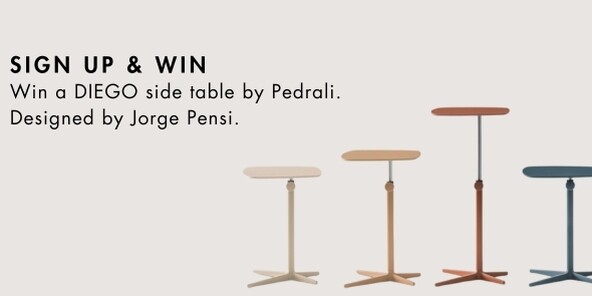
Yet another snazzy new cookbook? The title – "Delicate – New Food Culture" – may have given the game away; this book is not just about cooking and consuming food, but goes far beyond that. From farming to table service, it considers the many facets of our food, highlights the environmental, social, creative and even intellectual potential, from food and retail design to specialist publications, new gastronomic concepts, mobile cooking stations and clever packaging to events in museums and theatres. Its pages show that there is little else that can seduce all of our senses simultaneously like food can and that in combination with good presentation it can even become a small work of art. As the title suggests, "Delicate" presents food as a cultural ingredient, as an expression of our personal attitudes and social aberrations and thus a truly delicate topic. Comment replaces recipes But the term "delicate" as applied here is not a mere reference to food that is delicious and tasty, this publication also focuses on other semantic levels to the word, namely those rather awkward matters that surround food. While for some food remains a fast and for the most part cheap affair involving a quick detour to the supermarket or a pit-stop at a fast-food joint, quickly washed down with a coffee-to-go, the ever-growing number of cooking shows on TV that are making celebrities of Michelin-starred chefs demonstrate that consumption, preparation and presentation now constitute some of our favorite delights on earth. Nonetheless: uniform and standardized food, food as a mass-made product, food waste and the endless and indeed senseless packaging craze remain unwanted side-effects of our globalized food culture. The authors of "Delicate" make their readers aware of these excesses, though they do so without naming or shaming anyone, but with nothing more than an attentive selection of carefully considered alternatives to the fast-food machine. Chew your food slowly! The "Go Slow Café" provides a rather striking example of how practical this notion can actually be. It is all in the name, for the travelling pop-up restaurant and community project by Droog design with Marije Vogelzang, Hansje van Halem and sloom.org takes on senior citizens from the local area and thus makes for a celebration of virtues such as leisureliness and comfort. The "Conflict Kitchen USA" in Pittsburgh, by contrast, is somewhat more provocative and certainly faster: In combination with an accompanying cultural program, this restaurant serves dishes typical to the countries that the USA is currently at war with. Not only does this result in a menu rich in variety, but offers itself as a meeting point for political exchange. Taking a different approach, mini-packaging from Cocoro no Akari contributes a quiet yet convincing statement on the subject of sustainability: eggshells find a secondary application as dessert serving bowls. Culinary art fit for the exhibition hall Poetic and macabre at once: For her "Food on the table collection" product designer Marre Moerel took molds of animal organs and used them to create a white porcelain table service – a functional still-life and memento mori that makes no appraisal of meat consumption but nonetheless makes the subject at hand abundantly clear. Moving on to something a little more cheerful, photographer Carl Kleiner also shines the spotlight on food's aesthetic characteristics, capturing images of cheese, flour or vegetables and giving them titles such as "A Paraphrase of Kazimir Malevich" or "Composition in Yellow". A little more difficult to digest: a huge pile of peanuts, a ton of BBQ ribs sitting in a puddle of honey and whole apple trees used by artist Jennifer Rubell to fill the rooms of the Dia Art Foundation in New York in 2009. Glutted with possibilities for interpretation – this installation commenting on anti-consumerism and entitled "Creation" demonstrates how closely related creation and destruction can be. Bigger, better, faster, more? So what exactly would be a healthier relationship between humans and nature? Food for thought is provided by the designers at Studio Formafantasma with their open-source project "Autarchy", which speaks for producing smaller, more environmentally-friendly containers for food using of all-natural materials. But by implication that means that the user has to get involved too, as is the case for visitors to the "Kochhaus Schöneberg" for example. Here, guests are provided with workspace, ingredients and instructions, but are then left to their own devices – in other words, the guests cook for themselves! It may sound somewhat impertinent but in fact guests walk away with something much more perennial than they would gain from a conventional meal out, for – in the truest sense of the word – they take their food into their own hands and hopefully discover a new recipe along the way. Perusing the pages of "Delicate", you may not discover any new recipes but you will certainly encounter plenty of wise concepts. This extensive photo book, organized into five chapters, presents a diverse range of examples from the business and art worlds as well as the areas of retail, product and graphic design, all of which – well-thought-out yet extremely simple – call for a greater appreciation of the food we eat. In reality the authors are simply putting these ideas on a plate, they let the activists, artists and designers speak for themselves and present so the aesthetic, delicious and entertaining side of food. This is a book made by doers and idealists who make up for a lack of budget by making use of all of their senses and any helping hands and heads offered as well as daring to carry out such creative experiments or simply playing around with scents, shapes, colors, consistencies and tastes until a delicate product comes out. It is rather subtle, the way the authors have woven their message that less is often more into this book and thus inspired us to reflect and emulate. Delicate
Published by Robert Klanten, Sven Ehmann, Adeline Mollard, Kitty Bolhöfer
Paperback, 240 pages, English
Gestalten Verlag, Berlin, 2011
38 Euro
www.gestalten.com














